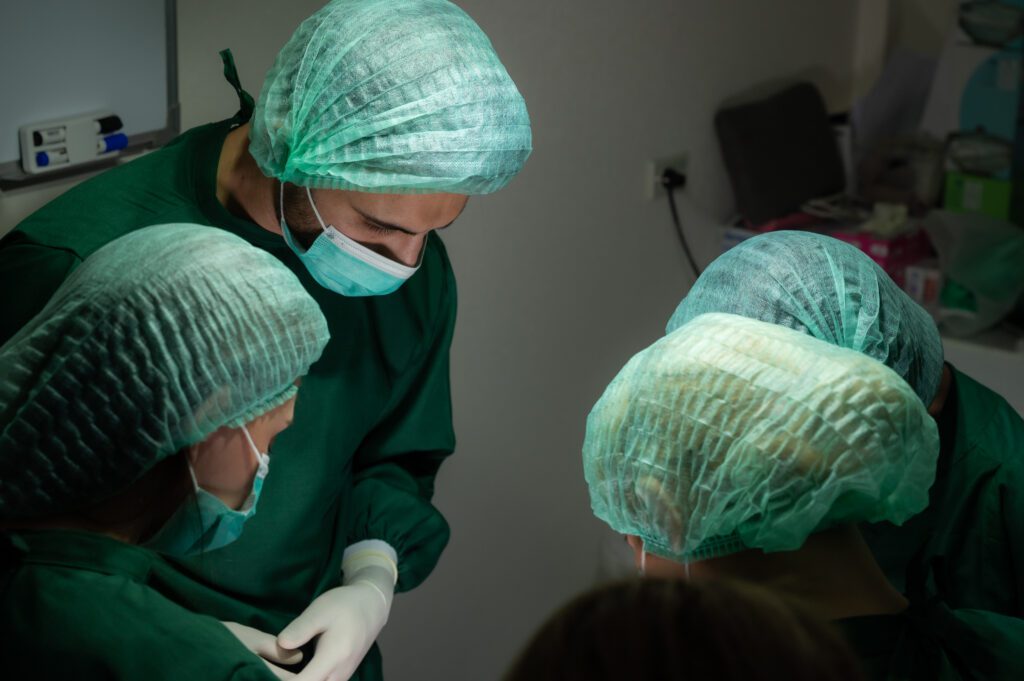What to Expect Before, During, and After Minor Surgery
Undergoing any surgical procedure, no matter how minor, can be a nerve-wracking experience. However, having a clear understanding of what to expect before, during, and after minor surgery can help alleviate anxiety and ensure a smoother recovery process. In this comprehensive guide, we will walk you through each stage of minor surgery, from preparation to post-operative care, so you can approach the procedure with confidence and peace of mind. It’s essential to remember that you are not alone in your apprehension, and healthcare providers are there to support you every step of the way. Armed with knowledge and a support system, you can approach your minor surgery with the reassurance that you are making a positive step towards better health and well-being.
Before Surgery
Pre-operative Consultation
The journey begins with a pre-operative consultation with your surgeon. During this appointment, your medical history will be reviewed, and any necessary tests or evaluations will be conducted to ensure you are fit for surgery. This is also the time to discuss any concerns or questions you may have.
Informed Consent
Your surgeon will provide you with detailed information about the procedure, potential risks, expected outcomes, and any available alternative treatments, ensuring you have all the necessary information to make an informed decision about your surgery. You will be asked to sign an informed consent form, indicating your understanding of these aspects and your willingness to proceed with the surgery.
Preparing for Surgery
Your surgeon will provide specific instructions on how to prepare for the surgery. This may include fasting for a certain period before the procedure, discontinuing certain medications, arranging for transportation to and from the hospital or surgical center, and addressing any concerns or questions you may have about the upcoming surgery to ensure you feel fully prepared.
Anesthesia Options
Depending on the nature of the minor surgery, you may receive local anesthesia, regional anesthesia, or general anesthesia. Your anesthesiologist will discuss the best option for you based on your medical history and the procedure itself.
During Surgery
Admission and Pre-Operative Preparations
On the day of the surgery, you will be admitted to the hospital or surgical center. You will change into a hospital gown, and an intravenous (IV) line may be inserted to provide fluids and medications.
Operating Room
You will be taken to the operating room, where the surgical team will ensure you are comfortable and properly positioned for the procedure. Monitoring equipment will be used to track vital signs such as heart rate, blood pressure, and oxygen levels.
Surgery
The surgical team will carry out the procedure while you are under anesthesia. You will not experience pain or discomfort during this time. Depending on the surgery’s complexity, it may take anywhere from a few minutes to several hours.
Recovery Room
After the surgery is complete, you will be transferred to a recovery room. Here, you will gradually wake up from anesthesia, and your vital signs will continue to be monitored closely. You may experience some grogginess or discomfort as the effects of anesthesia wear off.
After Surgery
Post-Operative Recovery
Once you are awake and stable, you will be transferred to a post-operative recovery area. Here, you will be closely observed as you regain full consciousness, your pain is managed, and any immediate post-surgical concerns are addressed by the medical staff to ensure a smooth transition to the recovery phase. It’s a critical period to ensure your well-being before leaving the medical facility.
Pain Management
Minor surgery typically results in some degree of pain or discomfort. Your healthcare team will provide pain relief options, which may include medication or other techniques, to ensure you are as comfortable as possible.
Discharge Planning
If the surgery was performed as an outpatient procedure, you will be discharged once you are deemed stable and your pain is under control. Before leaving, you will receive detailed instructions on post-operative care, including wound care, medications, and any restrictions on activities.
Follow-Up Appointments
It is essential to attend any scheduled follow-up appointments with your surgeon. These appointments allow your healthcare provider to monitor your progress, remove sutures or dressings if necessary, and address any concerns or complications that may arise.
Recovery at Home
Minor surgery recovery varies depending on the procedure, but it generally involves a period of rest and limited activity. You may need assistance with daily tasks, such as dressing, bathing, and preparing meals, especially during the initial days of recovery.
Wound Care
Proper wound care is crucial to prevent infection and promote healing. Your surgeon will provide specific instructions on how to clean and dress the surgical site. Follow these guidelines diligently to ensure a smooth recovery.
Pain Management at Home
Your surgeon may prescribe pain medications for use at home. Take them as directed and communicate any concerns or side effects with your healthcare provider.
Gradual Return to Normal Activities
As you recover, your surgeon will provide guidance on when you can gradually resume your normal activities, including work, exercise, and social engagements. It’s essential to follow these recommendations to avoid setbacks in your recovery.

Learn More About Minor Surgery From Clinica Familiar Amistad
Minor surgery may not be as complex or daunting as major procedures, but it still requires careful preparation and post-operative care. By understanding what to expect before, during, and after minor surgery, you can navigate the process with confidence and prioritize your health and well-being. Always maintain open communication with your healthcare team and follow their guidance to ensure a successful and uneventful recovery from minor surgery. Additionally, it’s crucial to remember that everyone’s healing process varies, and patience is key. Don’t be discouraged by minor setbacks, as they can be a normal part of the recovery journey. Trust in the expertise of your healthcare team and stay committed to your post-operative care routine for the best possible outcome.
Check out our Clinica Familiar Amistad blog to learn more about our professional healthcare services in Mesquite, TX.




Nice blog here Also your site loads up fast What host are you using Can I get your affiliate link to your host I wish my web site loaded up as quickly as yours lol